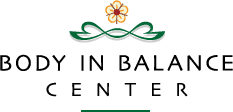Howdy Folks! This is my first official blog so bear with me as I hope to improve over time. Feedback is always welcome, provided you say only good things . Just kidding,…I always welcome constructive criticism and often follow a small percentage of it. 🙂
Since it's BACK to school month (you can tell by the horrific DC metro area traffic being back to normal) I thought I'd send us all to BACK school. I'm going to save my schpeel (how does one spell that, anyway?) about school backpacks for next month's blog as October is backpack awareness month, or something like that. Quickly, though, weigh your kids' backpacks and try to keep them under 10% of their body weight and try to convince them to carry them on both shoulders.
So, Back to school…
I find that the single most important thing I talk about in my office is posture.  Posture is controlled by voluntary muscles, while things like digestive function and blood vessels are controlled by involuntary muscles. The brain is pretty busy, though, so it's always looking for ways to be more efficient There are countless nerve impulses necessary to get our muscles to hold us up against gravity, and as they're often the same firing patterns (called engrams) happening over and over, the brain subjugates the firing of them to more "menial" parts of the cerebral cortex, kind of like Willie Wonka making the Oompa Loompas do all the menial work while he gets to turn kids into blueberries.
Posture is controlled by voluntary muscles, while things like digestive function and blood vessels are controlled by involuntary muscles. The brain is pretty busy, though, so it's always looking for ways to be more efficient There are countless nerve impulses necessary to get our muscles to hold us up against gravity, and as they're often the same firing patterns (called engrams) happening over and over, the brain subjugates the firing of them to more "menial" parts of the cerebral cortex, kind of like Willie Wonka making the Oompa Loompas do all the menial work while he gets to turn kids into blueberries.
There's so much to consider when addressing posture, but since the engrams are all programmed from usually years of doing the same thing, we have to put a little work in to re-teaching our bodies to make changes that will improve our quality of life ten, twenty, or even 70 years into the future. Bones and joints adapt to the forces placed on them over time. As an example, I spent 10 years as a respiratory therapist bending over patients' beds with my neck bent forward for 12 hour shifts, and when not listening to breath sounds, my stethoscope was hanging around my neck for easy access, which usually caused more forwardheadness (there don't seem to be enough words in the English language to get my points across so I make them up as needed) and shoulder shrugging so it wouldn't fall off. During my internship for chiropractic, I was having radiating pain down my arms from my neck and x-rays at age 32 showed a straightened cervical curve and swiss cheese for the C4-5 and C5-6 intervertebral discs. My clinician said I had a 60-year old neck. Years later (no, I'm not going to tell you how many), after diligently working to keep my head more on top of my body, getting more regular chiropractic adjustments, and adopting better biomechanics while working on patients in my office, I still have cheesy discs in my neck (there're more provolone-ish now) but I have gotten rid of the pain down my arms. The last time I had x-rays done the curve had improved some as well. I'm going to need my neck for a few more decades, hopefully, so I'm trying my best to minimize the stress on it.
My advice for this month is to start getting an idea of where your brain is holding your body. Take a look at how you stand, walk, sit at your desk, on the couch, how you read in bed, etc. Do you look down when you walk or do you greet the world head-on, so to speak? Do you reach for your mouse every time you need it or is it right there next to your keyboard? Is your pelvis (which is like a bowl) level or is it tilting forward because your brain might have forgotten where your abdominals are? Do your arms hang at your sides so your hands are at a 30-45o angle to your body or do the palms face backwards (I call that "chimping")? Don't stress over it, just spend some time becoming aware of where your body and its various parts are in space. Do you have any aches and pains that are relieved by changing position? Look at yourself in pictures that have been taken (or have someone take some).
The body is very plastic, in the sense that it can be molded. Not the hard plastic of Chinese restaurant take-out bowls, but moldable plastic, like, um, well, I can't think of what comes in moldable plastic but I'm sure it's out there. One guarantee is that it WILL adapt to the forces placed on it, so let's take a look at the forces we're placing on it. We'll keep the good ones, and improve on the others so that our bodies will be there for us in decades to come. Happy Homework!!



